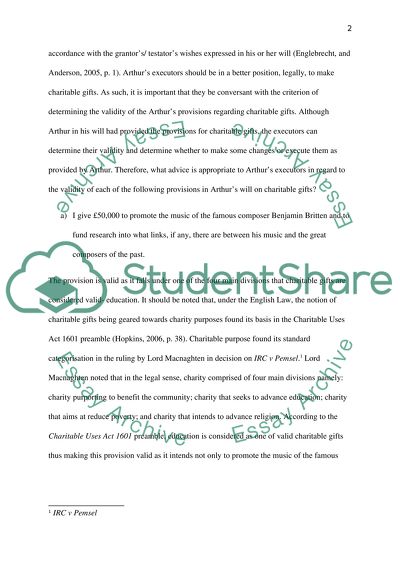Cite this document
(“Charitable Gifts Essay Example | Topics and Well Written Essays - 1500 words”, n.d.)
Retrieved from https://studentshare.org/law/1443344-check-assignment-criteria-section-for-the-question
Retrieved from https://studentshare.org/law/1443344-check-assignment-criteria-section-for-the-question
(Charitable Gifts Essay Example | Topics and Well Written Essays - 1500 Words)
https://studentshare.org/law/1443344-check-assignment-criteria-section-for-the-question.
https://studentshare.org/law/1443344-check-assignment-criteria-section-for-the-question.
“Charitable Gifts Essay Example | Topics and Well Written Essays - 1500 Words”, n.d. https://studentshare.org/law/1443344-check-assignment-criteria-section-for-the-question.


